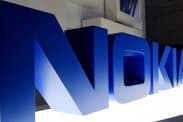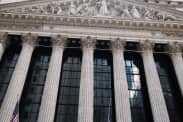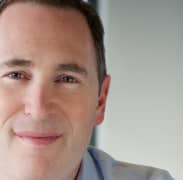CHAPEL HILL, N.C. – Andy who?
That is the question that many Amazon
AMZN,
It actually is a good sign that most of us have never heard of Jassy. That’s because researchers who have studied corporate leadership have found that superstar CEOs—whose names are widely known and whose faces you often see on the cover of business magazines—often do a poorer job than lesser-known managers who have worked their way up through the ranks of the corporations they eventually lead.
Jassy fits the bill.
One reason this is true is that a corporation’s internal culture “exerts a far greater longer-term influence on the company’s success” than a CEO, according to Rakesh Khurana, a Harvard University professor of sociology and organizational behavior, and Harvard College’s current dean.
By “corporate culture,” Khurana has in mind the often-unspoken beliefs that determine how employees—everyone from top executives to newest employees—interact with each other, how they negotiate with other businesses, and how they deal with shareholders. “Culture” also refers to whether employees walk the walk, as opposed to just talk the talk.
Internal candidates like Jassy are steeped in the corporate culture and know how to navigate it. In contrast, superstar CEOs brought in from the outside have no such familiarity, which at best leads to ineffective leadership.
Numerous academic studies over the years have documented the outsized role that corporate culture plays. In contrast, Khurana told me several years ago in an interview, “large-scale statistical studies have failed to find any direct causal link between CEOs and firm performance.”
Read: Jeff Bezos’ successor as Amazon CEO, Andy Jassy, gets the thumbs up from analysts
A similar conclusion emerges from research conducted by Jim Collins, the business consultant. When writing his book “Good To Great,” he identified companies in the Fortune 500 that at some point over the last several decades went from keeping up with the S&P 500 index
SPX,
More than 90% of the companies in the first group—the ones that went from “good” to “great”– appointed as CEOs internal candidates and who remained largely unknown to the outside world.
In contrast, only one third of the companies in the second group appointed internal candidates as CEO. No wonder that Khurana chose as the subtitle to his textbook on CEOs and corporate leadership “The Irrational Quest for Charismatic CEOs.”
It’s worth noting in choosing an internal candidate to succeed its founder as CEO, Amazon is following in the footsteps of both Apple
AAPL,
To be sure, choosing an internal candidate to be CEO is not a guarantee of success. Microsoft stock has done a lot better under Nadella’s leadership than it did under Ballmer, for example. And who can forget the disappointing performance of GE
GE,
Still, it definitely is a good sign that Amazon’s board is following the lead of the research into what type of leadership maximizes the odds of success.
Mark Hulbert is a regular contributor to MarketWatch. His Hulbert Ratings tracks investment newsletters that pay a flat fee to be audited. He can be reached at mark@hulbertratings.com.
More on Amazon:
Opinion: Why Amazon will still be Amazon in its post-Jeff Bezos era
With Jeff Bezos at helm, Amazon’s stock performance has made the S&P 500 look like a flat line
Jeff Bezos built Amazon into a monolith — but did it hurt American workers?







